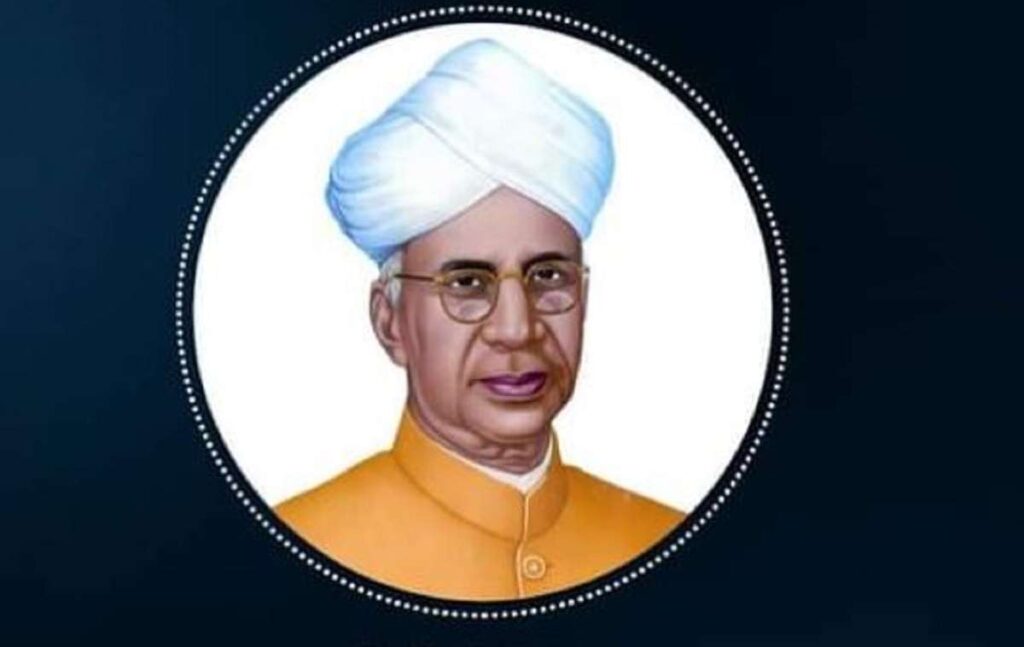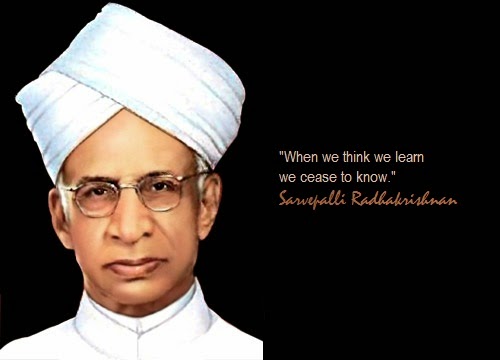Dr. S. Radhakrishnan, the former President of India, was not just a statesman, educationist, and philosopher but also a source of inspiration for millions worldwide. On his birth anniversary, we remember the exceptional contributions he made to our society and acknowledge the influential legacy he left behind.
Born on September 5, 1888, in the small town of Tiruttani in present-day Tamil Nadu, Dr. Radhakrishnan emerged as one of the brightest minds of his time. After obtaining his education at the University of Madras, he embarked on an enlightening journey as an academic in the field of philosophy. His deep knowledge and profound understanding of the subject soon earned him recognition as a distinguished scholar in India and abroad.
Though primarily an academic, Dr. Radhakrishnan’s tryst with politics began when he was appointed Vice-Chancellor of the prestigious Andhra University in 1931. This was followed by his appointment as Vice-President of India in 1952 and, subsequently, as the second President of India in 1962. His tenure as President was marked by his commitment to promoting education, culture, and interfaith harmony.

You can read our another post on Twin Temple of Gandharadi: A Marvel of Ancient Architecture
However, it is Dr. Radhakrishnan’s contribution to the field of education that truly sets him apart. As an educationist, he firmly believed in the power of knowledge and the role of education in shaping a nation. Under his leadership, several Indian universities witnessed transformations that placed a strong emphasis on research and academic excellence. His belief in the value of education was encapsulated by his famous quote, “Education is the fundamental method of social progress and reform.”
Dr. Radhakrishnan’s influence extended well beyond the boundaries of India. He traveled extensively and engaged in intellectual discourse with eminent thinkers from around the world. His lectures and publications on the philosophical traditions of East and West not only garnered immense acclaim but also helped bridge the cultural divide between the East and the West.
Among his notable works is his book, “The Philosophy of Rabindranath Tagore,” in which he brilliantly captures the essence of Tagore’s philosophy and its relevance in the modern world. This publication cemented the bond between two great Indian intellectuals and emphasized the importance of understanding and appreciating diverse perspectives.

Dr. Radhakrishnan’s humility, simplicity, and dedication to his work endeared him to people across generations. He firmly believed in leading by example, and in doing so, he became a role model for millions. Despite holding the highest positions in the country, he lived a simple life, valuing the principles of integrity, honesty, and compassion.
Today, as we pay tribute to the extraordinary life of Dr. S. Radhakrishnan, we must not only reflect on his remarkable achievements but also strive to embody the values he stood for. His profound intellect, unwavering dedication to education, and commitment to peace serve as guiding lights, leading us towards a more harmonious and enlightened future.
Let us remember Dr. Radhakrishnan’s words: “The true teachers are those who help us think for ourselves.” As we celebrate his birth anniversary, let us honor his memory by nurturing a spirit of inquiry, encouraging critical thinking, and spreading the light of knowledge.
1. Who was Dr. S. Radhakrishnan and why is he considered an important figure?
Dr. S. Radhakrishnan was a renowned Indian philosopher, statesman, and the first Vice President and second President of India. He is regarded as one of India’s most eminent scholars and intellectuals. His contributions to philosophy and education, along with his diplomatic role in representing India on the global stage, make him an influential figure in Indian history.
2. Why is Dr. S. Radhakrishnan’s birthday celebrated as Teachers’ Day in India?
Dr. S. Radhakrishnan’s birthday, on September 5th, is celebrated as Teachers’ Day in India to honor his significant impact on education. As an advocate for promoting education and the importance of teachers, he believed that teachers play a crucial role in shaping society. By celebrating his birthday as Teachers’ Day, it serves as a reminder of the invaluable contribution teachers make to the development of students and society as a whole.
3. What were some of Dr. S. Radhakrishnan’s major philosophical contributions?
Dr. S. Radhakrishnan’s philosophical contributions were substantial and wide-ranging. He emphasized the importance of understanding and synthesizing Indian philosophy with Western thought, working towards a harmonious integration of diverse ideas. His work helped bridge the gap between Eastern and Western philosophies, influencing the study of comparative religion and philosophical thought globally.
4. How did Dr. S. Radhakrishnan contribute to India’s diplomatic relations?
Dr. S. Radhakrishnan played a significant role in representing India on the global stage. As the Vice President and President of India, he engaged in numerous diplomatic missions, promoting India’s interests and strengthening international relations. He was a respected ambassador of Indian culture, philosophy, and values, which helped raise India’s stature in the global arena.
5. What is the significance of Dr. S. Radhakrishnan’s legacy today?
Dr. S. Radhakrishnan’s legacy continues to be relevant and impactful. His emphasis on education, philosophy, and bridging cultural differences remains crucial in the modern world. His principles of promoting tolerance, understanding, and the pursuit of knowledge serve as guiding principles in fostering harmony and progress. His legacy inspires generations to value education, respect diverse perspectives, and work towards a better world.
Conclusion
In conclusion, Dr. S. Radhakrishnan’s legacy is a glowing tribute to his invaluable contributions to Indian society and the world at large. His teachings and beliefs continue to inspire and guide us, reminding us of the power of education, the importance of dialogue, and the beauty of unity in diversity.
